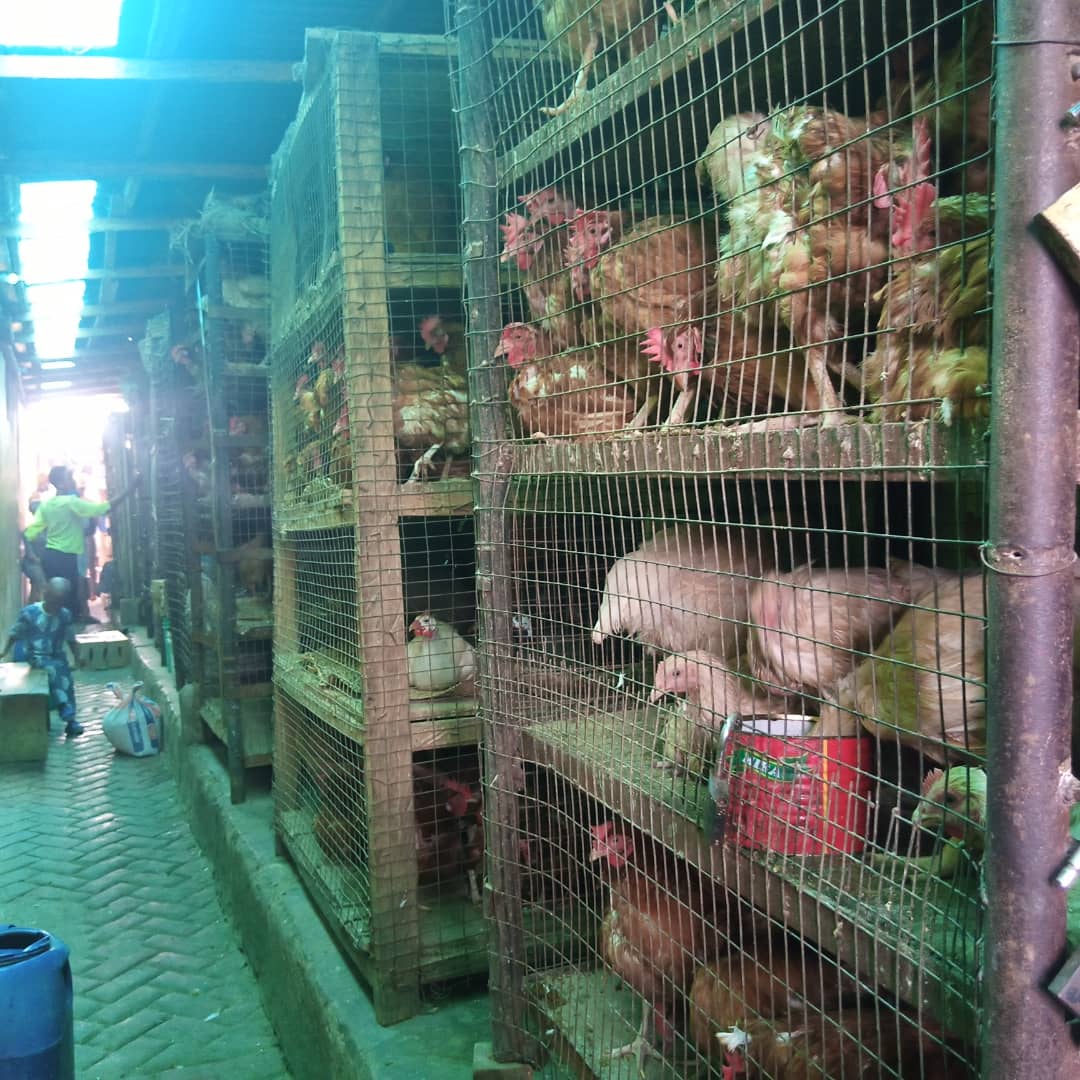To most Nigerians, ‘good food’ is the hallmark of an exciting and meaningful Christmas celebration. As a result, this time of the year witnesses amplified efforts and a certain type frenzy in markets across the country by residents who shop for foodstuffs to entertain guests.
This year, the rush to purchase food items took a different turns as many residents groaned under the weight of high food prices, worsened by huge costs of transportation.
Since the year began, Nigeria’s economy has seen a consistent surge in inflation which now stands at 21.47 percent.
According to the National Bureau of Statistics (NBS), food inflation rose to 24.13 percent in November, an uptick compared to the 23.72 percent recorded in the preceding month.
Advertisement
Consequently, to ascertain the level of inflationary pressure on consumers and sellers during the yuletide, TheCable carried out a market survey on some food items in Lagos markets.
The survey, conducted in Oyingbo, Mile 12, Ile-Epo, and Ikotun markets, cpatured concerns raised by traders on the slow pace of sales due to fluctuations in prices throughout the year. Consumers also described dealing with the ridiculous prices as “a big challenge”.
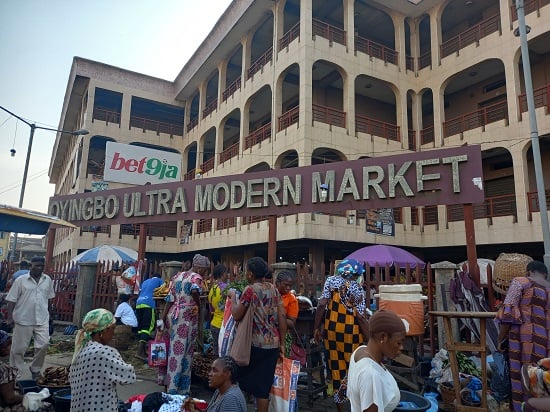
HIGH PRICES SLOW CONSUMER TURNOUT IN MARKETS
Advertisement
Speaking to TheCable, a trader who simply identified as Bashiru, said while food prices were high this season, it could be compared to last year.
Bashiru, who sells pepper in Oyingbo market, said the increased cost of transportation was also a major challenge for him, as it has affected prices significantly.
“Things are costly this year, but can’t be compared to last year. I mean, the price of a basket of tomatoes was more last year at Christmas but has dropped a bit,” he said.
“However, I cannot guarantee that the price will remain this way all through the Christmas and New Year season.”
Advertisement
Ifeanyi James, another trader in Ikotun market, said they (traders) are experiencing a low turnout of shoppers this season, unlike last year.
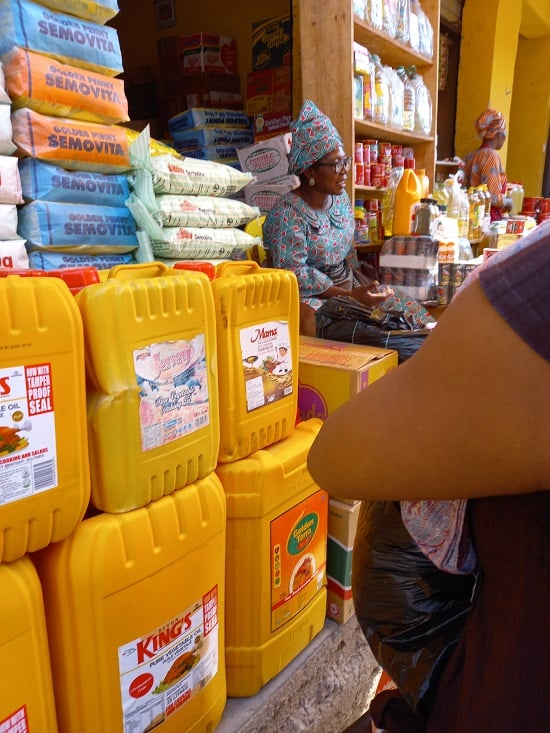
“I know how it was last year, December. At this time the market would have been filled with people rushing to buy things for Christmas but look at how few people in the market are,” he said.
“The market is quite slow this year and looks dry. But I believe things should change very soon.”
REDUCED PURCHASING POWER
Advertisement
Also speaking to the journalist, Florence John, a consumer, said she no funds for the Christmas shopping.
John, a sexagenarian, told the publication that she was expecting to get money from her children to prepare for the celebrations.
Advertisement
She said this would be the first time she would be waiting for so long for money from her children in a festive period.
“My children haven’t sent me money to prepare for Christmas, which is very unlike them,” John said.
Advertisement
Responding to the price of food, she said; “the prices of things have escalated and I heard it is worse in places outside Lagos like Abia and Abuja”.
“The economy is very different this year and we are hoping the new government does something about it.”
Advertisement
Funke Kojo, (not real name) another shopper, blamed the surge in prices on the recent nationwide flooding and fuel scarcity.
“Can the prices of things ever come down in this country? ” she asks.
“Things keep going up and rarely come down. Look at the current fuel scarcity and queues everywhere. The cost of transportation has increased, not to mention food items. The flood came and we survived, now we are faced with fuel scarcity.
“Look at the prices of the things I bought, the live chicken which was about N7,000 last year is now being sold for N9000 and above, and when you ask why they (sellers) sell at that price, they say is ‘the prices of chicken feed have gone up.
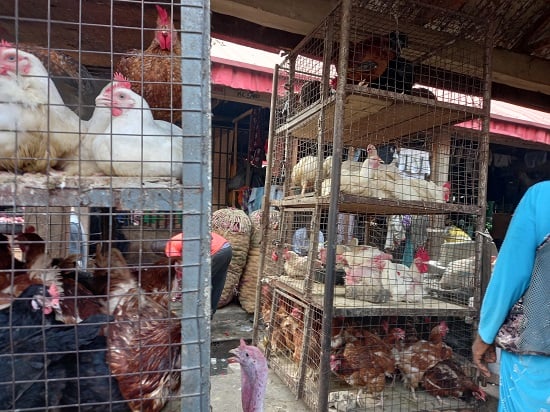
“It is obvious a lot of people who cannot afford a three square meal will find it hard to have a merry Christmas.”
WHAT TO EXPECT ACROSS MAJOR LAGOS MARKETS THIS YULETIDE
Meanwhile, TheCable’s visit to various markets in the state, found that a 50kg bag of foreign rice sells for between N42,000 and N36,000 in both big and small markets — while that of local rice is between N34,000 and N30,000.
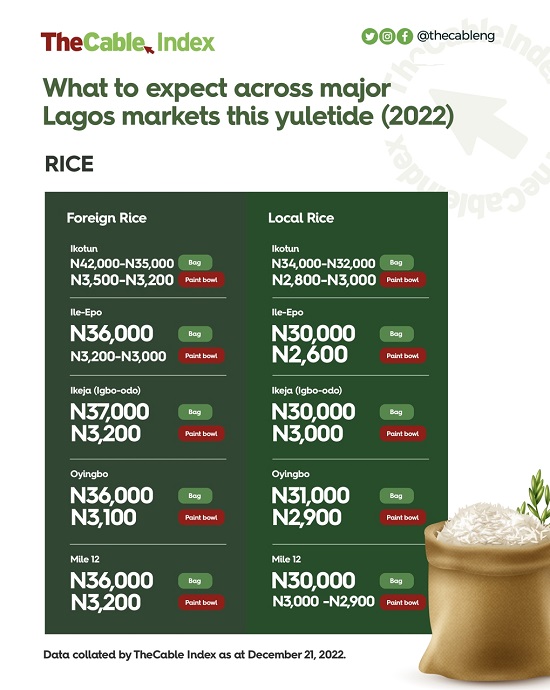
A paint bucket of foreign rice is sold for N3,300, while the local product is sold for N3,000, depending on the brand.
The survey found that 25 litres gallon of vegetable oil goes for N33,000, compared to last year when it was N27,000; 10 litres for N14,000; and 5 litres for N6,000.
Also, a basket of fresh tomatoes costs N18,000, and N9,000 for a crate.
A bag of pepper (Rodo) is sold for between N23,000 and N15,000, and smaller baskets go for as low as N1000 to N2,500.
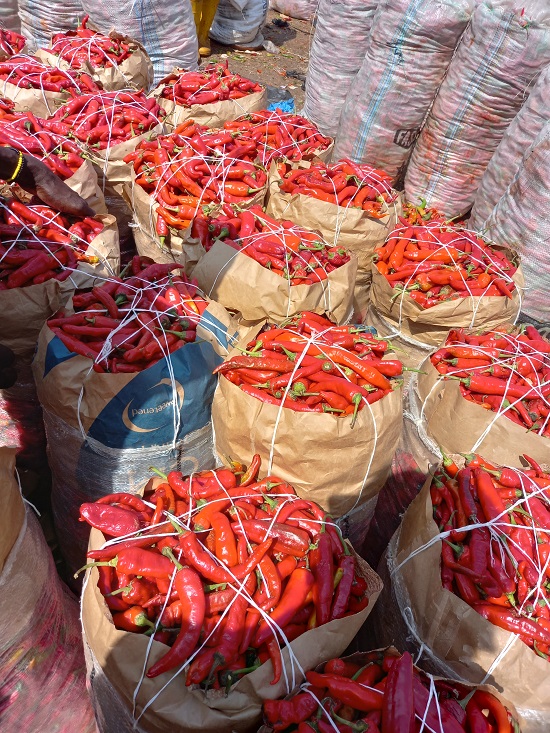
The price of bell pepper (tatashe) ranges between N15,000 to N8000, while a big bag of onions sells for between N75,000 and N50,000, depending on the size and colour.
More so, the price of a big basket of onions ranges from N45,000 to N40,000. While the medium size is either N30,000 or N25,000; the small basket goes for between N7,000 and N5,000.
In addition, the survey further found that traders sell a live chicken (layers) for N5,000, and broilers for between N9,000 and N13,000. A turkey, however, is sold between N25,000 and N40,000, depending on the size.
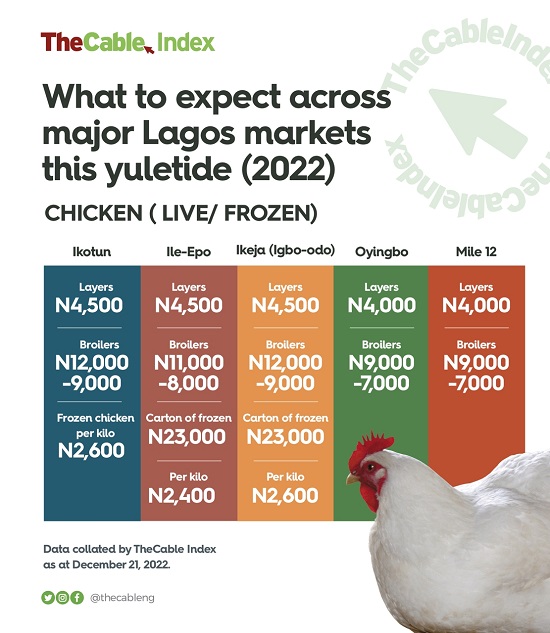
A carton of frozen chicken is between N23,000 and N24,000, while frozen turkey goes for N33,000.
Lastly, a kilogram of frozen chicken and turkey is N2,300 and N3,300, respectively.
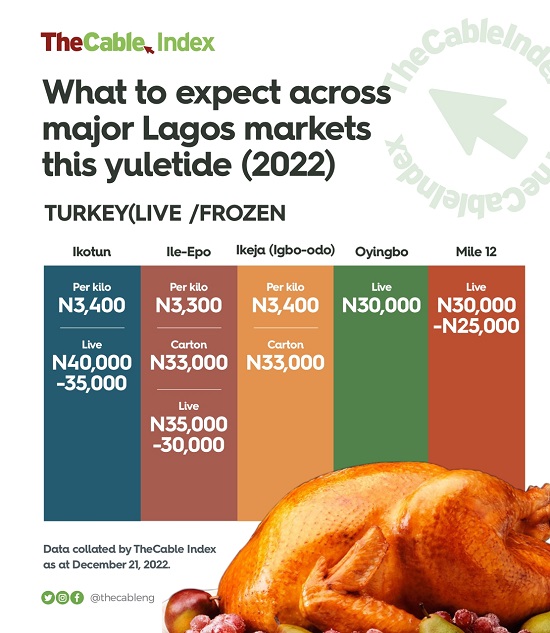
HOW TO PREPARE FOR PRICE HIKES
Speaking on the incessant increase in the prices of food items, James Shederack, a financial expert, highlighted ways buyers and sellers can stay ahead of the economic situation.
“Some of the things people can do in order to survive an inflationary period such as the hike in the prices or cost of living is to develop a good savings culture. That means no matter how much you earn, a good saving habit is important,” he said.
“Also, people should invest in items such as food and service and also invest in skills that would position them for the rising cost of living.
“On the seller’s part, one way of maintaining a good profit margin is to monitor the movement of goods sold out and also concentrate on volume sales rather than put too much profit margin on their products so that they can do more turnover. Another is also for them to employ capable hands to help them run the business and be able to meet future demands.”
Add a comment
